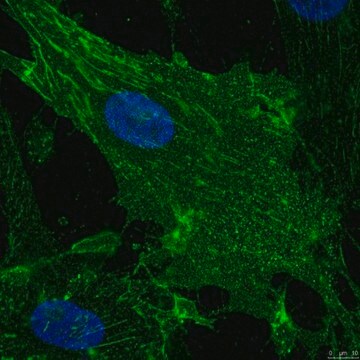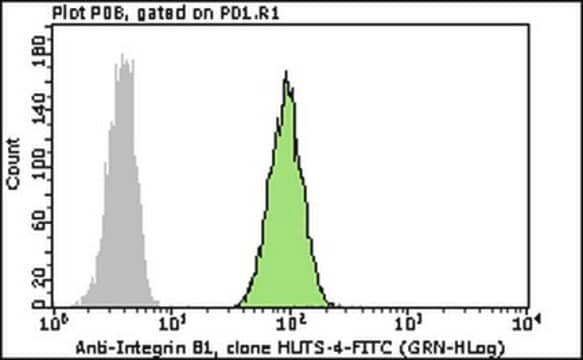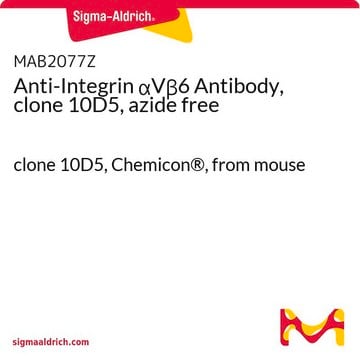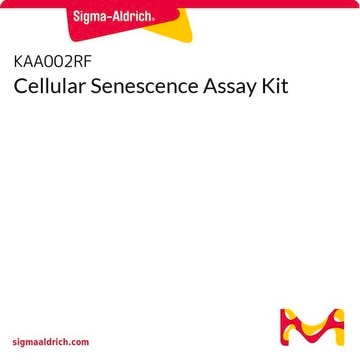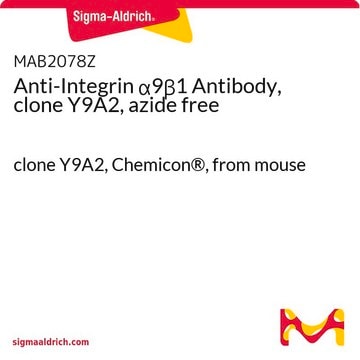MAB2021Z
Anti-Integrin αV Antibody, extracellular, clone AV1, azide free
culture supernatant, clone AV1, Chemicon®
Synonym(s):
CD51, VitronectinReceptor, MAB2021
About This Item
Recommended Products
biological source
mouse
Quality Level
antibody form
culture supernatant
antibody product type
primary antibodies
clone
AV1, monoclonal
species reactivity
human
manufacturer/tradename
Chemicon®
technique(s)
flow cytometry: suitable
western blot: suitable
isotype
IgG1
NCBI accession no.
UniProt accession no.
shipped in
wet ice
target post-translational modification
unmodified
Gene Information
human ... ITGAV(3685)
Specificity
Immunogen
Application
Western Blot. Under non-reducing conditions recognizes a band at approximately 165 kDa corresponding to integrin alphaV. Does not recognize the reduced protein.
Function-blocking of integrin alphaV-mediated adhesion to ECM proteins. (1:5-1:20, in HEPES buffer pH 7.4 containing 1mM Mn++ and 1mM Mg++).
Optimal working dilutions and protocols must be determined by end user.
Cell Structure
Integrins
Physical form
Storage and Stability
During shipment, small volumes of product will occasionally become entrapped in the seal of the product vial. For products with volumes of 200 μL or less, we recommend gently tapping the vial on a hard surface or briefly centrifuging the vial in a tabletop centrifuge to dislodge any liquid in the container′s cap.
Legal Information
Disclaimer
Not finding the right product?
Try our Product Selector Tool.
Storage Class Code
10 - Combustible liquids
WGK
WGK 2
Certificates of Analysis (COA)
Search for Certificates of Analysis (COA) by entering the products Lot/Batch Number. Lot and Batch Numbers can be found on a product’s label following the words ‘Lot’ or ‘Batch’.
Already Own This Product?
Find documentation for the products that you have recently purchased in the Document Library.
Our team of scientists has experience in all areas of research including Life Science, Material Science, Chemical Synthesis, Chromatography, Analytical and many others.
Contact Technical Service



